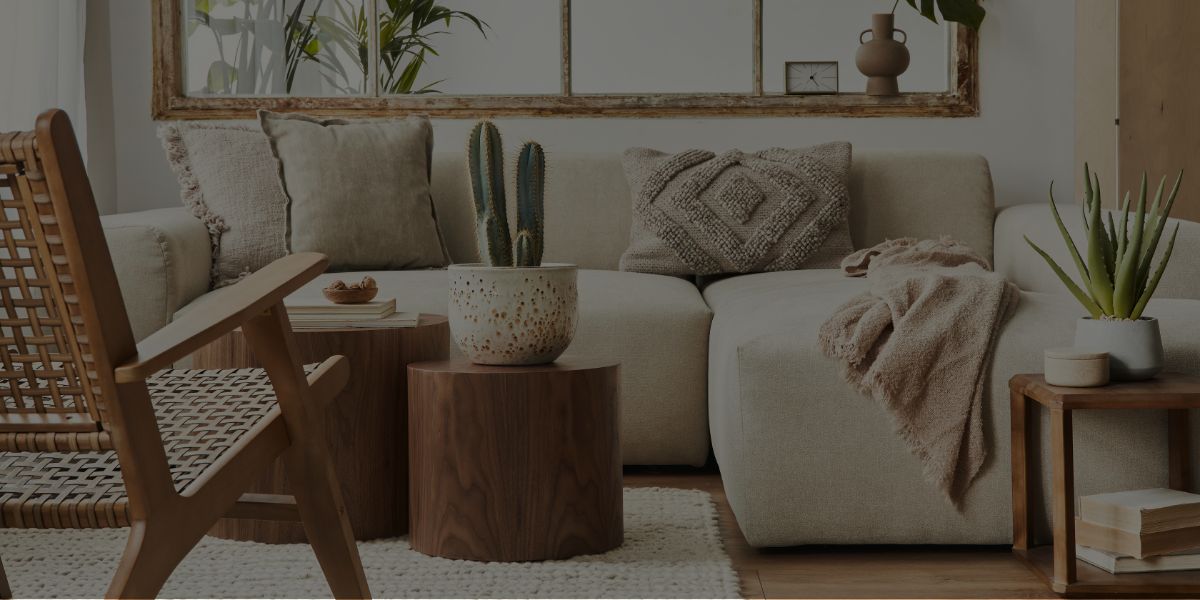Are you looking to start a business in the professional home staging industry? If so, you’re in luck! This article will break down the top 25 business tips for home stagers, so that you may better understand how to start, run, and maintain a thriving business.
Home staging is a rapidly growing industry, and there is plenty of room for new businesses to make their mark.
So, what are you waiting for? Read on for some valuable tips!
Before we begin, have you read our ULTIMATE Guide on how to become a home stager? If not, we strongly recommend checking it out! You’ll learn how to become a certified, working stager in just 7 simple steps!
A home stager is a professional who uses their design skills to make certain homes appeal to the greatest number of potential buyers. Home staging businesses are brought in to help sellers prepare their houses for sale by decluttering, depersonalizing, and making necessary repairs and improvements.
Home stagers typically work with real estate agents and homeowners to stage vacant properties or occupied homes that are on the market. Staging can be done before the house is listed (pre-listing staging). Alternately, it can also be done after it’s been listed but isn’t selling (post-listing staging).
While some home stagers work as employees of larger companies, most own their own business.

Is Staging a Good Business?
Home staging is an excellent business for individuals who have a natural eye for design and are good at marketing themselves. If you’re artistic, enjoy working with people, and have a entrepreneurial spirit, starting your own home staging business could be a great fit!
Starting your own home staging business offers many benefits, including:
- You can be your own boss
- You can make your own hours
- There is always a demand for home stagers
- It’s a relatively low-cost business to start up
- You can choose which projects you take on
- You can earn a great income
How Do Home Stagers Make Money?
Home stagers typically charge between $200 and $600 per day, depending on the size of the home and the scope of work. Some stagers also offer package deals that include an initial consultation, a walk-through of the property, a written report with recommendations, and one or more follow-up visits.
On average, home stagers make between $30,000 and $60,000 per year. However, top earners can make much more than this! In fact, some high-end home stagers charge upwards of $1000 per day and earn over $100,000 per year!
Factors That Can Impact Your Income
There are several factors that can impact your income as a home stager. These include (but aren’t limited to):
- Whether you’re professionally trained and certified or not
- The size of the homes you stage
- The location of the homes you stage
- How many hours you work (i.e. full-time vs. part-time)
- The type of clients you work with
- Whether you offer additional services, such as interior decorating or professional organizing
- Whether you offer in-person services, virtual services, or a combination of both
Pro Tip: Starting your career with a professional home staging certification on your resume will set you up for lifelong success… And you can earn yours through QC Design School‘s self-paced, online Home Staging Course in as little as 3-6 months!
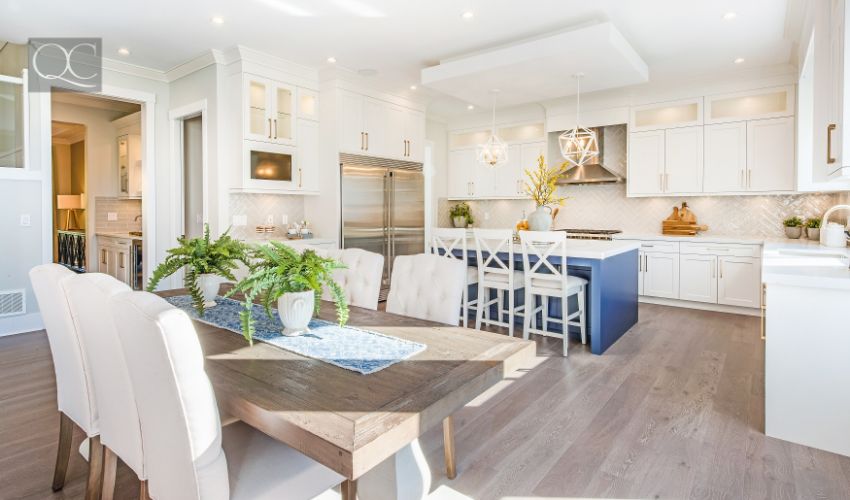
Home Staging Business Startup Costs
The cost of starting a business can vary widely, depending on the design services you offer and the equipment you need.
Generally speaking, you’ll need to invest in some basic office supplies (e.g. a laptop, printer, etc.). You may also want to purchase some furniture and decor for your own home or office space. Furthermore, you might want to consider investing in a digital camera and/or tripod to take high quality before-and-after photos of your projects.
If you plan on offering virtual staging services, you’ll need to purchase a quality computer program like Photoshop or Sketchup. And if you’re going to be traveling to clients’ homes, you’ll need to factor in the cost of transportation (e.g. gas, vehicle maintenance, etc.).
All in all, you can expect to spend anywhere from $500 to $5000 on startup costs for your home staging business.
Where Do Home Stagers Get Their Furniture and Decor?
There are a few different ways that home stagers can get their hands on furniture and decor. The most common method is to purchase items from stores like HomeGoods, Target, World Market, At Home, or IKEA. You can also find great deals on Craigslist, Facebook Marketplace, garage sales, and thrift stores!
Another option is to rent furniture and decor from companies like CORT Furniture Rental or AFR Event Furnishings. This can be a great option if you don’t have the storage space for a large inventory of your own. Plus, it allows you to offer a wider variety of styles to your clients!
Lastly, some home stagers work with interior designers and/or have access to high-end furniture stores. If you have connections like this, you can get some truly unique pieces for your clients’ homes!
No matter where you get your furniture and decor, be sure to price everything out ahead of time so that you can stay within your client’s budget.
Pro Tip: Home stagers should always have a “staging kit” on hand, which is a collection of basic items (e.g. table lamps, vases, throws, etc.) that can be used to stage any home.
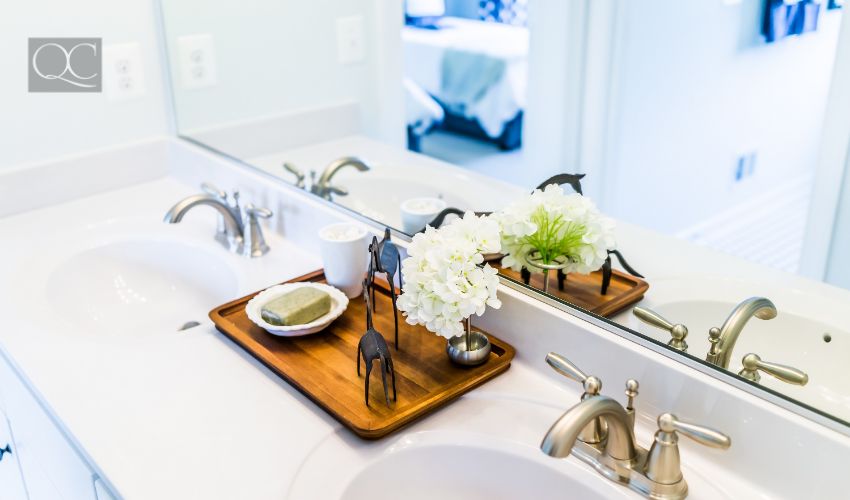
25 Need-To-Know Business Tips for Home Stagers
Now that we’ve covered the basics of what it takes to be a home stager, let’s dive into some specific business tips that will help you succeed in this career!
Tip #1: Be Good With People
Home staging is a service-based industry, which means your success will depend largely on your ability to provide excellent customer service. Be sure to always go above and beyond for your clients, and they’ll be sure to recommend you to their friends and family!
Tip #2: Market, Market, Market
Don’t underestimate the power of marketing! Investing in some quality marketing materials (e.g. business cards, flyers, website, etc.) can go a long way in helping you attract new clients.
If you’re new to marketing, here are some additional ways you can get your name out there:
- Attend local home and garden shows
- Sponsor a charity event
- Give presentations at local real estate offices
- Write articles for your local paper or blog
- Maximize social media
- Invest in paid advertisements
There are countless ways to market your home staging business. So, get creative and think outside the box!
Tip #3: Know Your Target Audience
In order to be successful, you need to know who your target audience is and what they’re looking for. Are you targeting home sellers? Home buyers? Realtors? Investors?
Once you’ve pinpointed your target audience, do some research to figure out what their needs are. This will help you tailor your services and marketing materials accordingly.
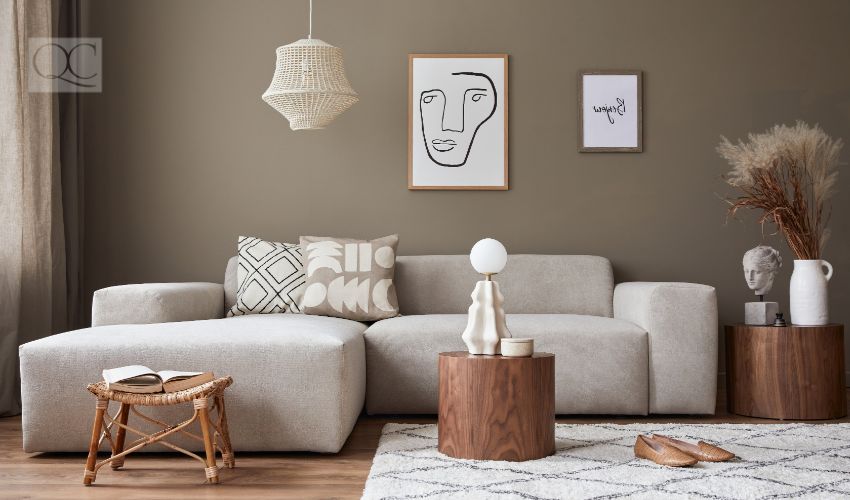
Tip #4: Have a Strong, Memorable Brand
Your brand is what sets you apart from your competition. It’s how you want people to perceive your business, and it should be reflected in everything you do.
From your logo and website design to the way you answer the phone and interact with clients, every detail matters when it comes to branding!
Never built a business brand before? No problem! Here are some valuable things to keep in mind:
- Your brand should be unique, memorable, and recognizable.
- It should accurately reflect your company’s values and mission.
- Your brand should also appeal to your target audience.
- Your brand should utilize whichever color(s), tone(s) of voice, and messaging you wish to have consistent with your home staging business.
Learn how to develop the perfect brand (and SO much more) in QC Design School’s online Accelerate Your Business Workshop!
Tip #5: Build a Beautiful Portfolio
One of the best ways to market your home staging business is by having a strong design portfolio. This will give potential clients a good idea of your style, eye for detail, and overall abilities.
Be sure to only include your absolute BEST work in your portfolio. And if you don’t have any professional photos yet, consider hiring a photographer to snap some shots of your staged homes.
Another option could be to collaborate with other designers on a stylized photoshoot. In exchange for your free staging services, you could ask for a copy of the high-quality images to then use in your portfolio!
Tip #6: Make a Professional Business Website
In addition to pretty pictures, your website should also include key information about your business, such as:
A professional website is essential for any business nowadays, and home staging is no exception. Your website should be designed in a way that accurately reflects your brand and showcases your best work.
- An About Me section
- A full, up-to-date list of your services
- Pricing
- Contact information
- Links to your social media pages
- Client testimonials
- An online booking option
Not sure where to start? No problem! This blog post will teach you everything you need to know to get the ball rolling.
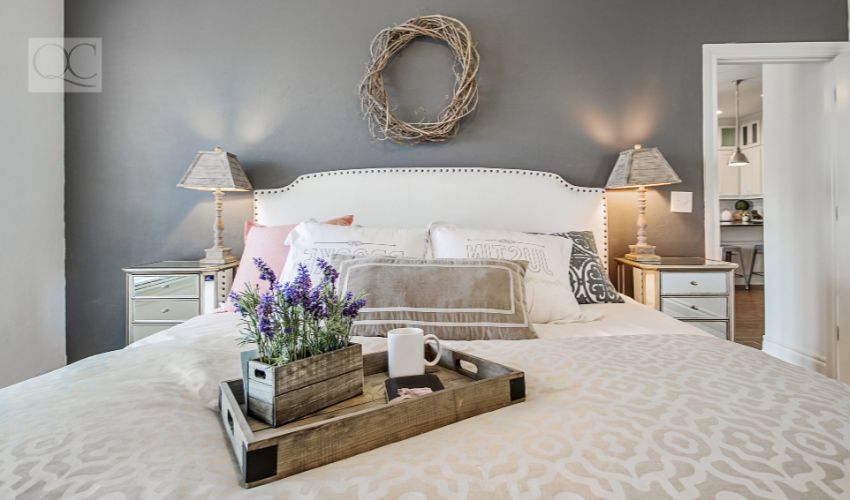
Tip #7: Get on Social Media
There’s no denying that social media is a powerful tool. Not only can it help you connect with potential clients, but it can also be used to generate leads and drive traffic to your website.
So, what are you waiting for? Start building those social media profiles! Personally, we recommend building a presence on platforms such as Facebook, Instagram, TikTok, Pinterest, Twitter, and YouTube.
Tip #8: Get Your Home Stager Business Insured
There are many different types of insurance policies available for home stagers, so be sure to do some research and figure out which one(s) will work best for you. In general, however, these are the most common types of insurance you’ll come across in your research:
No matter how big or small your business is, it’s always a good idea to get insured. This will protect you (and your staging business) in case anything ever goes wrong.
Tip #9: Put Together Your Staging Kit
As a home stager, it’s important to have all the necessary supplies and equipment on hand to get the job done right. This could include items such as:
- Furniture
- Decor
- Storage bins
- Moving blankets
- Tape measures
- Tool kits
- Ladders
- And more!
Not sure where to start? We recommend putting together a list of must-have items, and then slowly adding to your collection as you grow your business. You can also ask other home stagers for recommendations on what they like to use in their own staging kits!
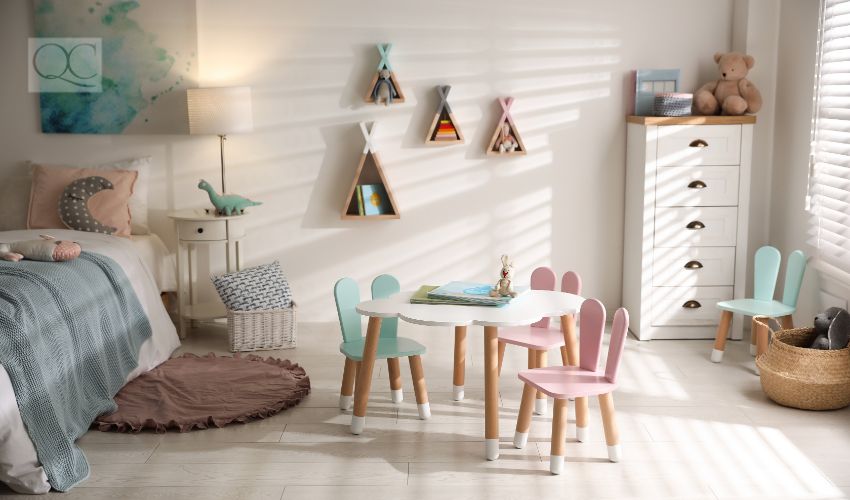
Tip #10: Join a Professional Design Association
Joining professional organizations is a great way to network, learn from your peers, and get your business name out there. Plus, most organizations offer their members discounts on things like liability insurance and marketing materials.
Some home staging professional organizations include the:
- Real Estate Staging Association (RESA)
- Canadian Association of Renovators and Home Stagers (CARAHS)
- International Association of Home Staging Professionals (IAHSP)
Fun Fact: Students and graduates of QC’s home staging training are automatically eligible for memberships with both RESA and CARAHS! Learn more about this here.
Tip #11: Network Whenever Possible
One of the best ways to grow your home staging business is to network with other professionals in the industry. This could include real estate agents, interior designers, interior decorators, home builders, and more.
Not only will this help you get your name out there – you might also be able to snag some referrals! So, don’t be afraid to put yourself out there and start networking today.
You never know who you might meet!
Tip #12: Get Organized and Stay on Schedule
One of the keys to success in any business is staying organized. This is especially true in the world of home staging, where you’ll often be juggling multiple projects at once.
To help you stay on top of things, we recommend investing in a good project management system. This could be something as simple as a physical planner or a digital tool like Trello.
No matter what system you use, just make sure it works for you and helps you stay on top of your projects!
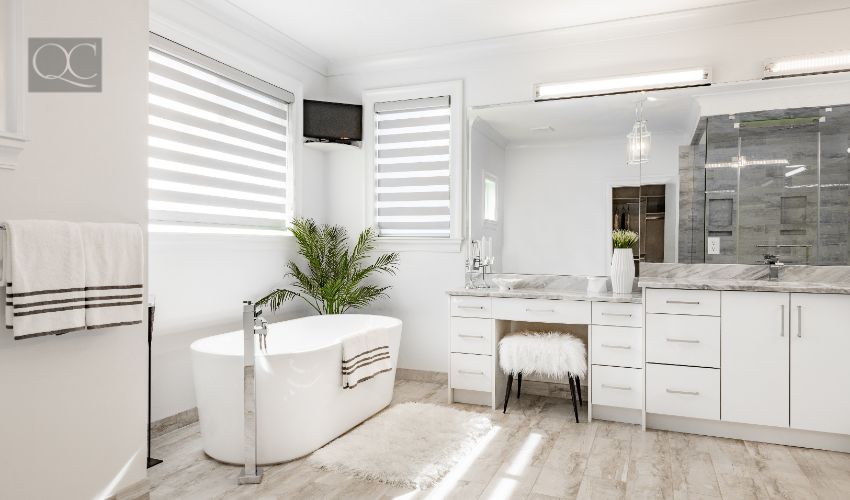
Tip #13: Know The Importance of Curb Appeal in Home Staging
There are many different ways to improve curb appeal, but some common methods include:
After all, first impressions matter – and you want potential buyers to have a good impression of the homes you’re staging.
Curb appeal is the term used to describe how appealing a property looks from the street. And in the world of home staging, it’s one of the most important things to keep in mind!
- Power washing the exterior
- Mowing the lawn
- Planting flowers or shrubs
- Painting the front door
- Cleaning up any clutter around the property
Remember, you only have one chance to make a good first impression – so make it count!
Tip #14: Keep Your Clientele in Mind
As a home stager, it’s important to remember that you’re not staging homes for yourself – you’re doing it for your clients! This means that, when selecting furniture and decor for a space, you need to keep the client’s taste in mind.
Not sure what they like? Just ask! During your initial consultation, be sure to get a feel for their design style preferences. This will help ensure that the final product is something they’ll love.
And if your clients aren’t sure what their preferred design style is? You can always help them identify it during the consultation!
Tip #15: Join Online Home Stager Communities
Not only will you be able to interact with other like-minded professionals; you’ll also have access to a wealth of knowledge and resources. Here are just a few of our favorite online communities for home stagers:
One great way to connect with other home stagers, learn new tips and tricks, and stay up-to-date on the latest industry news is to join online home staging communities.
Furthermore, you can also join many wonderful groups (both public and private) on social media platforms such as Facebook, Twitter, Reddit, and Instagram!
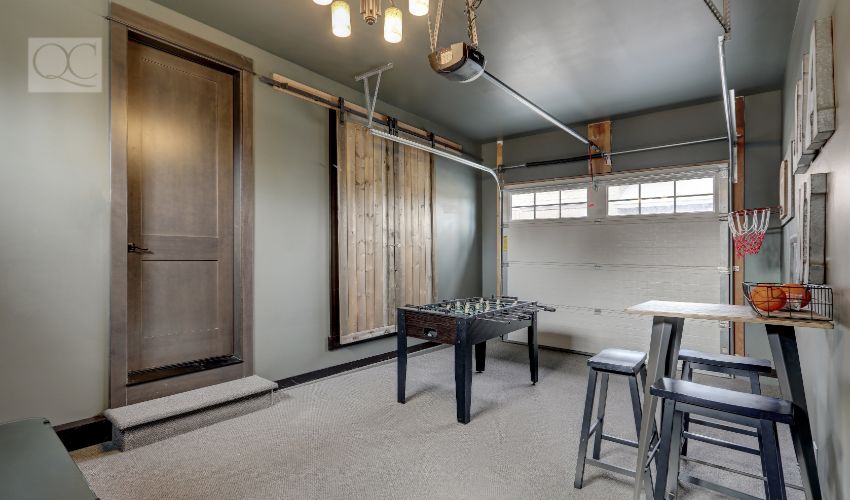
Tip #16: Stay Up-To-Date on Home Staging Trends
Some great resources for staying up-to-date on home staging trends include:
Another great way to ensure your home staging business is successful is to stay up-to-date on the latest trends. This way, you can be sure that you’re always offering your clients the most stylish and popular staging options.
Furthermore, you can stay topical and current by continuing your professional design education training. This will help ensure that you’re always ahead of the curve!
Tip #17: Consider Choosing a Niche
While you’re not required to specialize in a certain type of home staging, it can be beneficial to choose a niche. This could be anything from luxury properties to fixer-uppers or even eco-friendly staging. Your niche could also be as simple as specializing in specific rooms of the home – such as bedrooms, kitchens, and bathrooms.
Not only will this help you stand out from the competition, but it’ll also allow you to target a specific group of clients. This can be especially helpful when marketing your business!
Tip #18: Or Go The Opposite Route and Offer Multiple Design Services, All Under One Roof
Another option is to offer multiple design services all under one roof! This could include anything from home staging to interior decorating, professional organizing, color consulting, landscape design, Feng Shui design, and even virtual staging.
By offering multiple services, you’ll be able to appeal to a wider range of clients – which can only mean good things for your business!
Guess what? QC Design School offers self-paced, online certification courses on ALL of the specialties listed above (and more). Check out our full course list here!
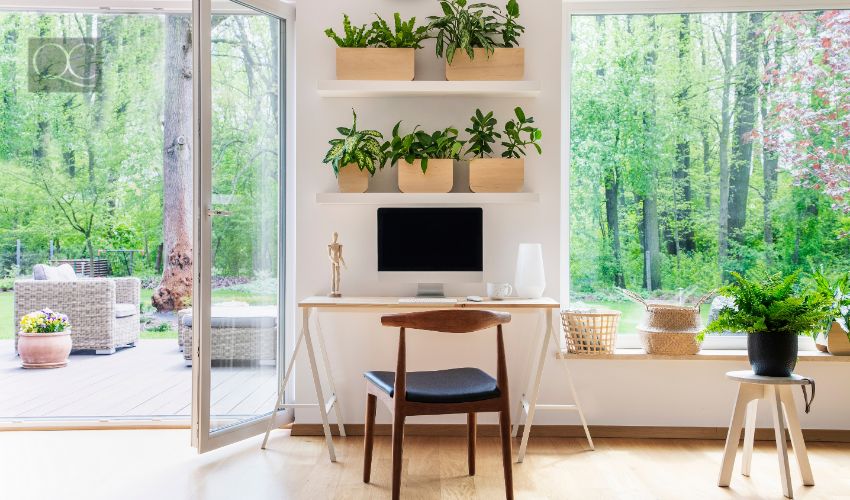
Tip #19: Price Your Home Staging Services Properly
Pricing your home staging services properly is essential to the success of your business. If you charge too much, you’ll likely lose out on potential clients. But if you charge too little, you may not be able to cover your costs or make a profit.
Not sure how to price your services? A great place to start is by considering your costs (e.g., inventory, marketing, etc.) and then adding a markup. For example, if it costs you $200 to stage a home, you may want to charge $400 – giving you a 100% markup.
Also, don’t forget to do a little digging to see what your competitors are charging. You don’t want to be too much lower or too much higher than the market average!
Tip #20: Figure Out How You Plan To Get Clients
Getting clients is one of the most important – and challenging – aspects of running a home staging business. After all, without clients, you won’t have any homes to stage!
There are a number of different ways to get clients, but some of the most effective include:
- Networking with real estate professionals
- Marketing your business online (e.g., through social media or your website)
- Advertising in local publications (e.g., newspapers, magazines, etc.)
- Hosting open houses or other events
- Speaking at local conferences or meetups
- Getting (and showing off) positive client testimonials
- Word-of-mouth referrals
- Offering incentives to first-time customers, such as a discounted service or free consultation
Figure out which marketing strategies work best for your business and then make sure to put a consistent effort into them! It takes time and dedication to build up a strong client base, but it’ll be worth it in the end.
Not sure how to land your first paying client? Here are 11 ways you can book clients as a brand-new home stager (or simply get more customers for your existing business)!
Tip #21: But Don’t Forget About Client Retention, Too
Client retention can be approached in a number of ways, but some of the most effective include:
Once you’ve landed some clients, it’s important to keep them happy! This will increase your chances of them coming back to you for more business in the future. Plus, a positive experience on their end will make them more likely to recommend you to other people.
- Staying in touch, even when you don’t have projects lined up (e.g., sending holiday cards or other occasional correspondence)!
- Offering discounts or other incentives for referrals and/or future bookings!
- Asking for feedback after each project and then making an effort to implement any suggestions!
- Going above and beyond to make sure each project is a success!
- Making yourself available for questions or concerns – even after the job is done!
Again, by keeping your clients happy, you’ll not only increase the likelihood of repeat business… You’ll also get some free marketing through word-of-mouth referrals!
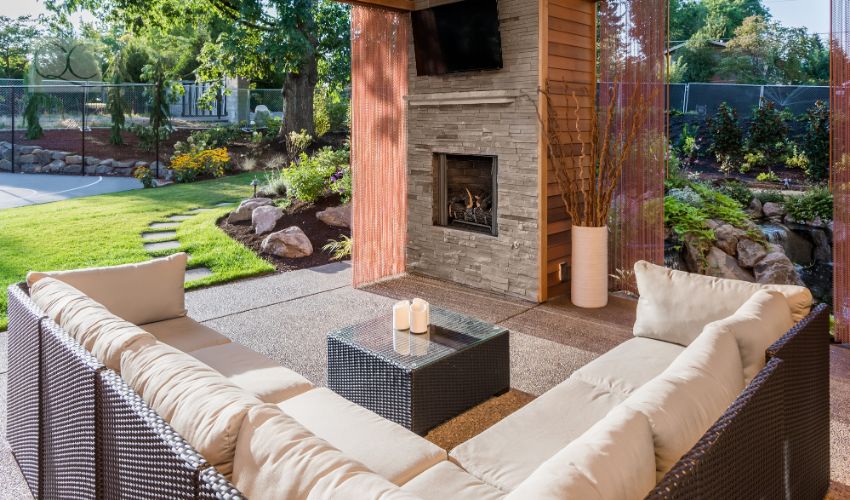
Tip #22: Stock Up on Client Testimonials – And Showcase Them
As we just discussed, client testimonials are essential for any home staging business – both when you’re trying to land new clients and retain existing ones.
But what exactly is a testimonial? A testimonial is simply a statement from a satisfied customer that can be used to promote your business. If you don’t already have some client testimonials, make it a priority to get them!
There are a few different ways to go about getting testimonials, but one of the simplest is to just ask your happy clients if they wouldn’t mind writing a few words about their experience working with you. Another great way to get testimonials is by offering incentives, such as discounts or other freebies, in exchange for them.
Once you’ve got a few testimonials, make sure to showcase them prominently on your website and social media pages! You can also include them in your marketing materials (e.g., flyers, brochures, etc.) and in any correspondence with potential or current clients.
Tip #23: Get Involved in Your Local Community
One great way to promote your home staging business is to get involved in your local community. This could involve anything from sponsoring a local event or charity to hosting free workshops or open houses.
Not only will this help you gain exposure for your business, but it’ll also allow you to give back to the community that supports you!
Tip #24: Be Flexible and Open-Minded
In the world of home staging, no two projects are ever exactly alike. This means that, as a stager, you need to be flexible and open-minded in order to be successful.
Being flexible doesn’t just mean being willing to work with different clients and properties – although that’s certainly part of it! Being flexible also means being able to adapt your plans on the fly, as well as being willing to try new things.
After all, the home staging industry is always evolving – so if you want to stay ahead of the curve, you need to be willing to change with it!
Tip #25: Don’t Forget To Renew Your Business License
This one might seem like a no-brainer, but it’s actually easy to forget to renew your business license!
Be sure to set a reminder for yourself so that you don’t accidentally let your license expire. Depending on where you live, you may also need to renew your business insurance policy and/or any other permits or licenses associated with your business.
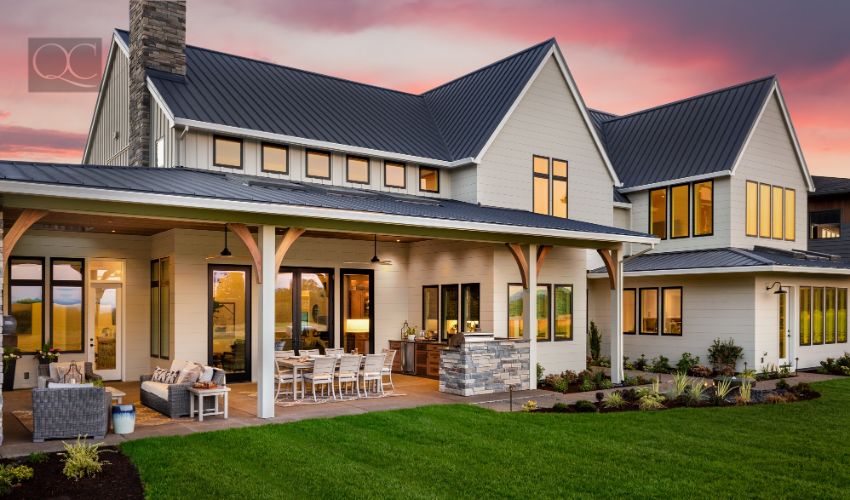
Bonus Tip #26: Keep Track of Your Business Expenses
Finally, one of the most important business tips for home stagers is to keep track of all your business expenses. This includes everything from office supplies and marketing materials to travel expenses and professional development courses.
Not only will this help you stay organized, but it’ll also make it easier for you come tax time! Be sure to save all your receipts and/or keep a running list of all your business-related expenditures.
Home Staging Business Ideas: How to Start a Staging Business with No Money
Finally, let’s talk about some specific business ideas you can use to get your own business up and running with little to no funds!
One great way to get started in the home staging industry is to offer your services for free (or at a deeply discounted rate) to family and friends. This will give you the opportunity to build up your portfolio and get some experience under your belt. Once you have a few projects under your way, you can start marketing your business to real estate agents and homeowners in your area.
Another great ideas is to start a mobile home staging business, where you travel to your clients’ homes to stage their properties. This is a great option if you have a knack for design and enjoy working with people. Plus, it’s a great way to get out of the house and meet new people!
Lastly, you can offer virtual staging services. With this type of service, you can stage homes from the comfort of your own office (i.e. no need to travel)! Plus, you can reach a wider audience of clients since location is not a factor. All you need is a quality computer program like Photoshop or Sketchup and you’re good to go!
These are just a few ideas to get you started. But there are ENDLESS possibilities when it comes to starting your own home staging business!
Fun Fact: In as little as one month, you can learn how to take your home staging business online with QC Design School’s Virtual Design Training mini course!

Business Tips for Stagers: Final Thoughts
There you have it – 25 business tips for home stagers! We hope this article has given you some helpful insights into how to start, run, and grow a successful business in the professional home staging industry.
Remember, the most important thing is to just get started! So, what are you waiting for? There’s never been a better time to start your own home staging business!
